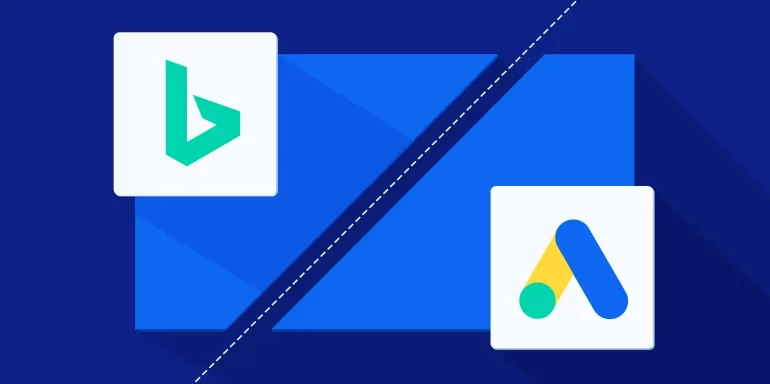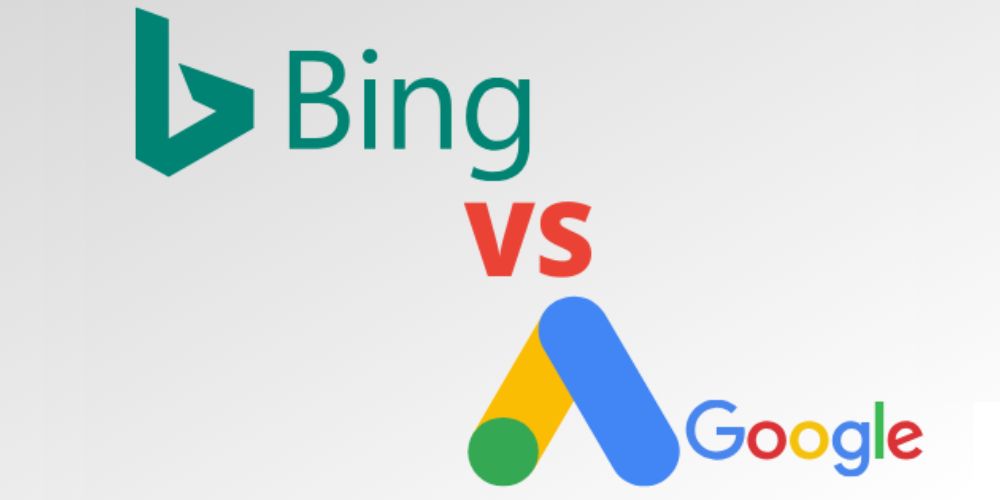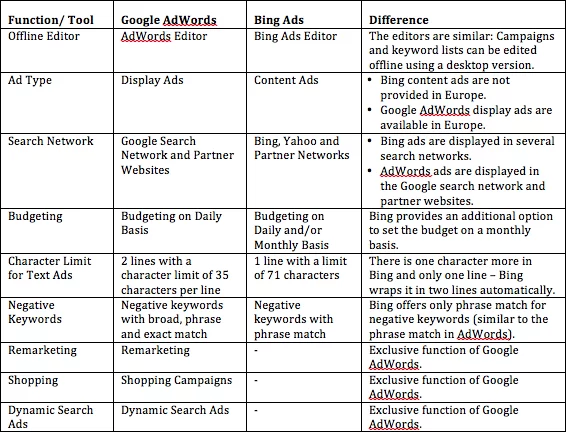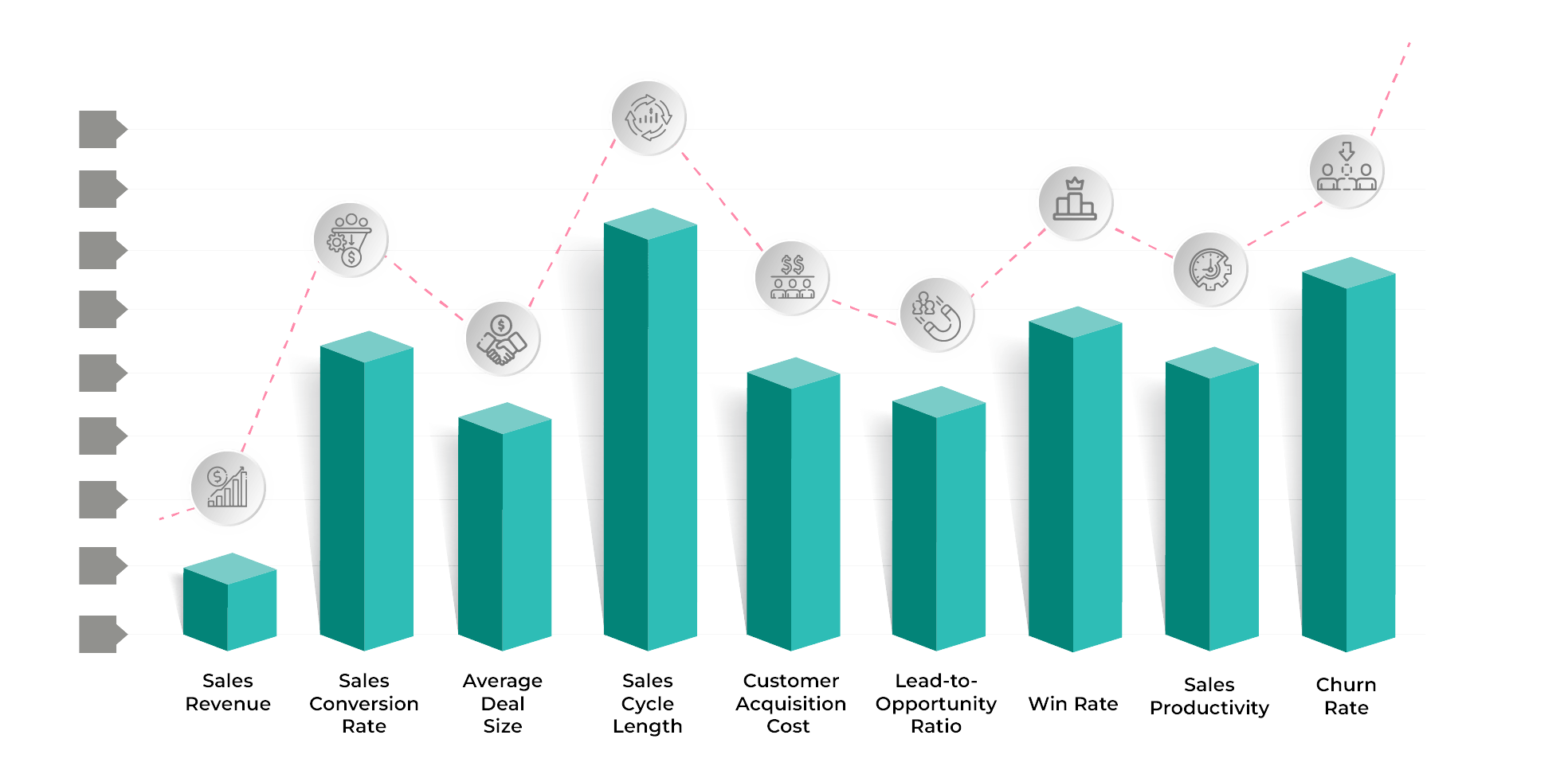In today’s digital landscape, choosing the right advertising platform is crucial for businesses aiming to maximize their online presence. With numerous options available, Bing Ads and Google Ads stand out as two prominent contenders in the realm of paid search advertising. This article delves into the intricacies of Bing Ads versus Google Ads, offering insights that will help you determine which platform is the right fit for your business.
Understanding the Basics: What Are Bing Ads and Google Ads?
What Are Google Ads?
Google Ads, formerly known as Google AdWords, is an online advertising service developed by Google. It allows businesses to display ads on Google’s search engine results pages (SERPs) and across the Google Display Network, which includes millions of websites, videos, and apps. Advertisers bid on keywords relevant to their products or services, and the ads appear in search results when users search for those keywords. Google Ads operates on a pay-per-click (PPC) model, meaning you pay only when someone clicks on your ad.
What Are Bing Ads?
Bing Ads, now known as Microsoft Advertising, is Microsoft’s advertising platform that enables businesses to display ads on Bing’s search engine and across its partner network, which includes Yahoo and AOL. Similar to Google Ads, Bing Ads operates on a PPC model and allows advertisers to bid on keywords. Despite having a smaller market share compared to Google, Bing Ads can still be an effective tool for reaching potential customers.
Key Differences Between Bing Ads and Google Ads
While Bing Ads and Google Ads share many similarities, there are several key differences that can impact your advertising strategy. Below, we explore these differences across various aspects, including audience demographics, cost, features, and performance.
Audience Demographics
One of the primary differences between Bing Ads and Google Ads lies in their audience demographics. Google Ads boasts a more extensive reach, with over 90% of the global search engine market share. This extensive reach means that businesses using Google Ads can tap into a broader audience, making it ideal for companies looking to maximize their visibility.
In contrast, Bing Ads has a smaller but highly engaged audience. Research shows that Bing users tend to be older and more affluent than Google users. According to Microsoft’s data, 38% of Bing’s audience are over 35 years old, compared to 32% on Google. This demographic information is essential for businesses targeting specific age groups or income levels.
Cost Comparison
When it comes to advertising costs, Bing Ads often provides a more affordable alternative to Google Ads. Generally, the cost-per-click (CPC) rates on Bing are lower than those on Google, allowing businesses to achieve better returns on investment (ROI). The lower competition on Bing also means that advertisers may pay less for similar keywords compared to Google.
However, it’s important to note that while Bing Ads may have lower CPCs, the overall traffic volume is also less than what you would find on Google Ads. As such, businesses should consider their advertising budgets and desired reach when choosing between the two platforms.
Features and Tools
Both Bing Ads and Google Ads offer a range of features and tools to help businesses optimize their campaigns. However, some key differences can affect your advertising strategy:
Ad Formats
- Google Ads: Google Ads offers a variety of ad formats, including text ads, shopping ads, video ads, and display ads. This diverse selection allows businesses to choose the most suitable format for their target audience.
- Bing Ads: Bing Ads also provides multiple ad formats, but with some unique options, such as image extensions and product ads that can help businesses showcase their offerings visually.
Targeting Options
- Google Ads: Google Ads boasts advanced targeting capabilities, including demographic targeting, remarketing lists, and in-market audiences, which allow advertisers to reach users based on their behavior and interests.
- Bing Ads: While Bing Ads offers targeting options, it may not be as comprehensive as Google’s. However, Bing does allow advertisers to target specific locations and audiences effectively.
Performance Metrics and Analytics
Both platforms provide robust performance metrics to help businesses analyze their advertising efforts. Google Ads tends to offer more in-depth analytics and reporting tools, allowing advertisers to track user engagement, conversion rates, and other essential metrics.
Bing Ads, on the other hand, provides essential performance metrics that are sufficient for most advertisers, but may lack the depth found in Google’s analytics. Nevertheless, the straightforward dashboard of Bing Ads can be more user-friendly for beginners.
Common Questions and Misconceptions
Is Bing Ads Only for Small Businesses?
One common misconception is that Bing Ads is only suitable for small businesses or niche markets. In reality, many large enterprises successfully utilize Bing Ads to reach their audience. Given Bing’s unique user demographics, businesses that target older or more affluent customers may find that Bing is an effective channel.
Can I Use Both Platforms Simultaneously?
Absolutely! Many businesses choose to use both Google Ads and Bing Ads to maximize their reach and diversify their advertising efforts. By allocating budgets across both platforms, you can capture a wider audience and take advantage of the strengths of each advertising service.
How Do I Determine the Right Platform for My Business?
To determine whether Bing Ads or Google Ads is right for your business, consider the following factors:
- Target Audience: Analyze the demographics of your target audience and where they are most likely to engage with ads.
- Advertising Budget: Evaluate your budget and whether you prefer a platform with lower CPC rates or are willing to invest more for broader reach.
- Business Goals: Define your advertising goals, such as brand awareness, lead generation, or direct sales, and align them with the features offered by each platform.
Practical Advice for Businesses
When deciding between Bing Ads and Google Ads, here are some practical tips to guide your decision-making process:
Start Small
If you are new to online advertising, consider starting with a small budget on both platforms. This approach allows you to test the waters and identify which platform delivers better results for your specific business needs.
Conduct Keyword Research
Invest time in keyword research to determine which keywords are relevant to your business and which platform offers better opportunities for those keywords. Tools like Google Keyword Planner and Bing Keyword Research Tool can help you identify valuable keywords and their associated CPC rates.
Monitor Performance
Whichever platform you choose, consistently monitor your ad performance. Use analytics to track key performance indicators (KPIs) such as click-through rates (CTR), conversion rates, and ROI. Adjust your campaigns based on the data to optimize performance over time.
Conclusion: Making the Right Choice for Your Business
In the debate of Bing Ads versus Google Ads, there is no one-size-fits-all answer. Each platform has its unique strengths, weaknesses, and target audiences, making it essential for businesses to consider their specific goals, demographics, and budgets. By understanding the key differences between Bing Ads and Google Ads, businesses can make informed decisions that align with their advertising objectives.
Ultimately, whether you choose Bing Ads or Google Ads, the most crucial factor is to continuously evaluate your advertising efforts and adapt your strategies accordingly. With the right approach, both platforms can help you reach your target audience and achieve your business goals effectively.










